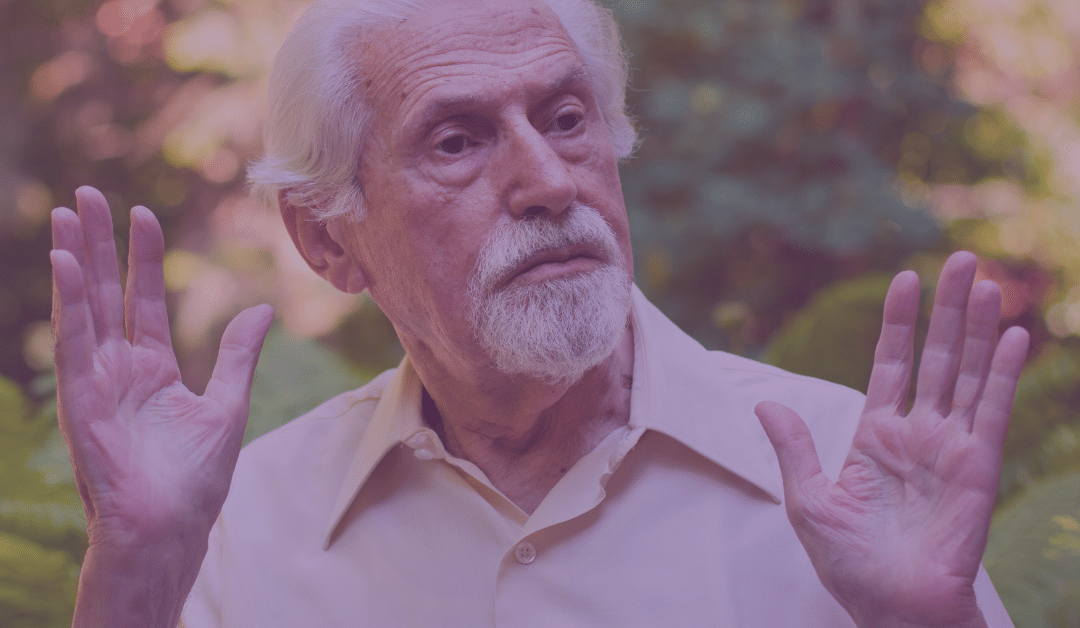
by Madeleine Craig | Jul 31, 2021 | Chaos to Clarity, Family Addiction
There is no list of dos and don’ts in terms of what you can discuss with your loved one. There is a list of dos and don’ts when it comes to WHEN and HOW you talk about things with your loved one:
Family members are often afraid that certain topics will make their loved ones use again.
If you want to have a discussion with your loved one about a topic that triggers this fear in you, it is important to remember the three Cs: you didn’t cause it, you can’t control it, and you can’t cure it.
What this means is that nothing you say or don’t say can either MAKE your loved one use or keep them in recovery.
However, do not try to have a conversation with your loved one if they are under the influence. It’s pointless. In fact, if your loved one is under the influence, you should do your best not to engage in any discussion with your loved one.
If you never have an opportunity to discuss with your loved one when they’re not under the influence, you may have to make decisions without their input.
You may try to let your loved one know that there are things to discuss, and you won’t be able to include their input unless they give you an opportunity to talk to you when they’re not under the influence, but of course, there is no guarantee they will do that.
And they may try to start a fight and pressure you into having a conversation that they are in no condition to reasonably have. Giving in is not likely to be productive.
Anything can be brought up and discussed as long as you can do it with respect for your loved one’s dignity. Avoid blaming and accusatory tones. If an action by your loved one is a cause of a situation, point that out calmly.
Also, remember that you don’t necessarily have to come to any conclusions in one conversation. Either of you might need time to think certain things over.
It is important not to allow your loved one to force you into conclusion you’re not prepared to make, or come up with an answer you’re not prepared to give.
Use the broken record technique if this happens, repeating over and over something to the effect of “I need some time to think about it/consider the options.”
It’s also important to give your loved one this time should they ask for it. Yes, they may just be stalling, but if it becomes apparent that is what is happening, then you may have to set a boundary, or a deadline around the conversation, making sure it’s a boundary you are prepared to keep.
Again, no false threats or your loved one simply learns not to take you seriously.

by Madeleine Craig | Jul 31, 2021 | Chaos to Clarity, Family Addiction
You don’t know if you can trust what your loved one says.
What I always suggest family members do is to trust actions, not words.
If your loved one is asking you trust their words, you can respectfully respond to what they ask with, “I hope you do, I really do, but I’m not ready to trust just yet. It’s going to take time for me to be able to trust you again.”

by Madeleine Craig | Jul 31, 2021 | Chaos to Clarity, Family Addiction
No. The idea of ‘rock bottom’ is bandied about in our culture, but it’s actually a myth, and a dangerous one.
It comes from back in the early days of AA when very little was known about addiction, let alone how to treat it. Back in those days, most people who did end up recovering had very, very low bottoms.
Furthermore, no one actually knows what ‘bottom’ is for anyone. For one person it may be getting written up at work. For some, a DUI. For others, it will take a near-death experience. And sadly, others may follow the addiction to the grave.
I strongly discourage you allowing the idea of ‘rock bottom’ to keep you from taking the actions I’ve suggested in previous modules. Because substance use disorder is easier to treat the less severe it is, and any one of those things could be edging your loved one closer to seeking recovery.
You don’t know what the tipping point is for them. You can only do what you can do.

by Madeleine Craig | Jul 31, 2021 | Chaos to Clarity, Family Addiction
One of the most unfair things about a loved one’s addiction is that family members often end up paying a very high price, a price beyond the emotional pain of your loved one’s behavior.
When it comes to your safety, and your finances, and your mortgage, you may need to speak to a professional: a financial advisor, a police officer, a lawyer, or a mortgage broker.
Your physical safety is a top priority, so if that is threatened, that is the first thing you need to address.
But, aside from the fact that these issues may, in particular, require you to seek professional advice, like many other issues that come with your loved one’s drug and alcohol use, you will, again, need to take the time to get honest with yourself about what you can and cannot continue to accept.
How far in debt are you willing to go? Are you willing to lose your home? If your loved one is your spouse, you may need to ask yourself, under what conditions am I willing to stay married?
Perhaps you’ll decide to seek a therapist or a coach to support you in determining what your bottom line is in any of these situations.
And sometimes these situations are unavoidable. They’re happening and there’s no turning back from it. You will need effective support to navigate these things. And you may still need professional support.

by Madeleine Craig | Jul 31, 2021 | Chaos to Clarity, Family Addiction
If you have already shared your feelings about your loved one’s alcohol or drug use, then boundaries, allowing natural consequences to occur, and self-care are going to be essential to you. Often these things communicate more effectively than any words you could use.
This may also be something you might want to discuss with a therapist and/or a trusted support person, but I’d like to suggest that it is not always helpful to try to force someone out of denial.
I say this because it may be impossible to know if your loved one’s denial about their alcohol or drug problem is actually protecting your loved one from another more serious problem they’re genuinely not prepared to face.
This is why the medical and recovery community is trying to change the language around this.
Melodie Beattie calls denial the shock absorber for the soul.
I have a friend in my family recovery program who really believed another friend of his absolutely needed to stop drinking. But then he realized that drinking might be the only thing that’s keeping her from killing herself.
Of course, the drinking could end up killing her, too. But the point is, denial is a protective mechanism. Sometimes we can stay stuck in it too long, but sometimes it really does keep us from walking off a cliff.
So be careful about forcing the issue.
I was in complete denial for years and years about how profoundly growing up with so much addiction in my family had affected me. It wasn’t until I had had effective support around me for quite some time and I had rebuilt some of my self-esteem that I was able to come out of it. That’s because, growing up, my life depended on acting like everything was OK.
I have no doubt that many other people could see the severity of my issues well before I could.
But the truth is, if I had seen how badly I had been affected by the alcoholism and drug use in my family, I probably would have just killed myself because I would have believed that there was no way to overcome that. I would have said, there is no getting’ there from here.
So I’m very grateful today that I couldn’t see it.
Hopefully now you can see how denial often gets a bad rap. Sometimes it can be a good thing. In fact, it could be saving someone’s life.
If your loved one is close to being ready to come out of denial, the other things recommended in this program, may be the nudge that will support them in doing that.

by Madeleine Craig | Jul 31, 2021 | Family Addiction
If your loved one refuses to seek help, it will be all the more important for you to seek support and to give thought to any boundaries you will need to set around your loved one’s use to take care of yourself.
This is a heartbreaking scenario, but it happens.
Addiction is a very challenging disease for everyone involved. You will still need to do all the things that ensure that your addicted loved one does not control everything in your life and to build a life outside of this issue to the best of your ability.
It’s hard to give these suggestions because this outcome is so heartbreaking, so know that you will also need to allow yourself to grieve.
My mother has never acknowledged that she has any kind of problem, nor sought any treatment for it, and she is both addicted to prescription drugs and has a serious mental illness.
I used to think she needed to recover and to realize all the pain she was causing me in order for me to be OK. I honestly thought that if she didn’t recover, and if she didn’t change, I would never survive the pain of that.
And I made myself crazy trying to get her to see the problem and to change, and I’m the one who ended up severely depressed and on antidepressants because I couldn’t get her to see what she was doing. I just honestly thought it would kill me.
But what I didn’t realize was how much my heart could hold. Yes, there is this significant grief in my heart, but there is also so much more to my life.
My mother’s refusal to recover is this burden I will carry. And she is
likely to die of her addiction or from complications from it. And the day that happens is going to be a sucky day indeed.
But I won’t have to walk through that alone. And I have many other fulfilling things going on in my life that give my life purpose and meaning. And I also have my mother.
And when she dies, I will certainly grieve the mother I never had, but I will also be relieved the mother I did have is gone. The journey with her has not been fun.
I sincerely hope your loved one chooses to recover, but if they do not, it will also be helpful for you to seek support from people whose loved one’s have also chosen not to recover so you have people who can relate and who can help you specifically with those challenges.
And, never say never. Your loved one may simply be saying no to recovery today.






Recent Comments